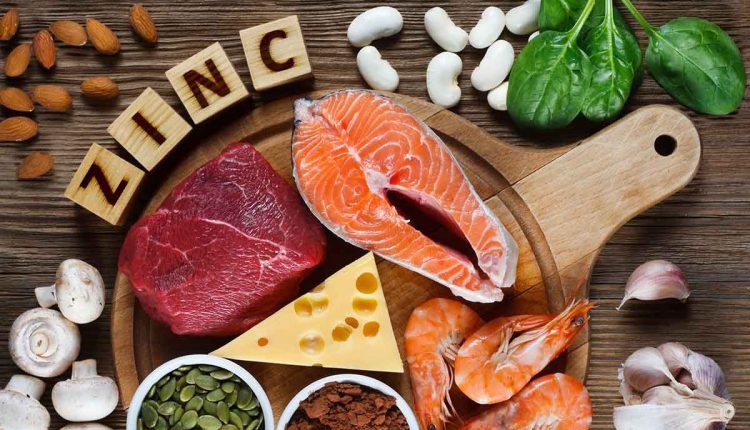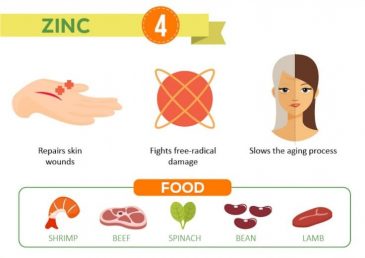
What Is Zinc And Why Do You Need It?
We all know about calcium, vitamin C, iron and vitamin D; however, a mineral that does not get enough attention is Zinc. A 2014 study conducted in Pakistan shows that approximately one third of the population does not receive adequate amounts of zinc
Signs That Your Vitamin D Levels Are Low
What exactly is zinc?
Zinc is a mineral, or essential trace element that is absolutely necessary in maintaining the overall health of the human body. Although only a small amount of zinc is needed for optimal health, it needs to be consumed regularly as the body does not keep stores of this mineral. Therefore, our everyday diets need to include zinc rich foods.
Read: The Best Vitamins For Women
Signs and symptoms of zinc deficiency:

- Stunted growth
- Slow recovery of wounds
- Frequent and recurring diarrhea
- Excessive fatigue
- Changes in appetite
- Loss of the ability to taste/smell well
- Infertility
- Hormonal imbalances
- Low immunity
Your hair fall may be due to a lack of the right vitamins.
Why do we need zinc?
Zinc deficiency can result in stunted growth, diarrhea, slow recovery of wounds, and Wilson’s disease.
Apart from the negative effects of deficiency, zinc is needed for:

- Better immunity: We readily turn to vitamin C to fight our colds, but zinc is known as an effective remedy to fight off colds and prevent them too.
- Antioxidant properties: contains anti-inflammatory and anti-oxidant properties that fight against many diseases. It is speculated to prevent cancer growth and support the growth of healthy brain cells.
- Regulating blood sugar: since zinc is closely bound to insulin, it ensures that insulin is stored well, and released when required. This benefits diabetes patients greatly.
- Balancing hormones: fertility in both men and women can benefit greatly from adequate amounts of zinc. Estrogen and progesterone production in women both need zinc; thus, decreasing problems with early menopause, mood swings and menstruation.
- Fighting diarrhea: Zinc is known most commonly for its ability to improve digestive health, in particular as a diarrhea remedy.
- Liver health and function: it can reduce inflammation in the liver and reduces the occurrence of infection.
- Muscle health and repair: many athletes are particular about their intake of zinc as it maintains muscular strength and repair. The mineral is also essential for cell growth and the release of testosterone (which aids muscle mass).
- Slowing the aging process: It aids the formation of new cells, therefore decreasing the symptoms of aging significantly. For example: improved brain function and memory, quicker healing of wounds, better eye health, etc.
Also Read: Vitamins That Are Essential For Healthy Skin
What to do if you feel you are suffering from zinc deficiency:
First and foremost, you must visit a nutritionist or your doctor and relate the symptoms you are experiencing. If required, they will prescribe a supplement with the correct dosage.
Do not treat yourself (without doctor’s advice) with supplements, as too much of the mineral is not good for you either.
Include zinc-rich foods in your regular diet. For e.g.: nuts, seeds, red meat and yogurt.
Make sure that other medication, minerals and vitamins are not effecting the absorption of zinc by your body.

